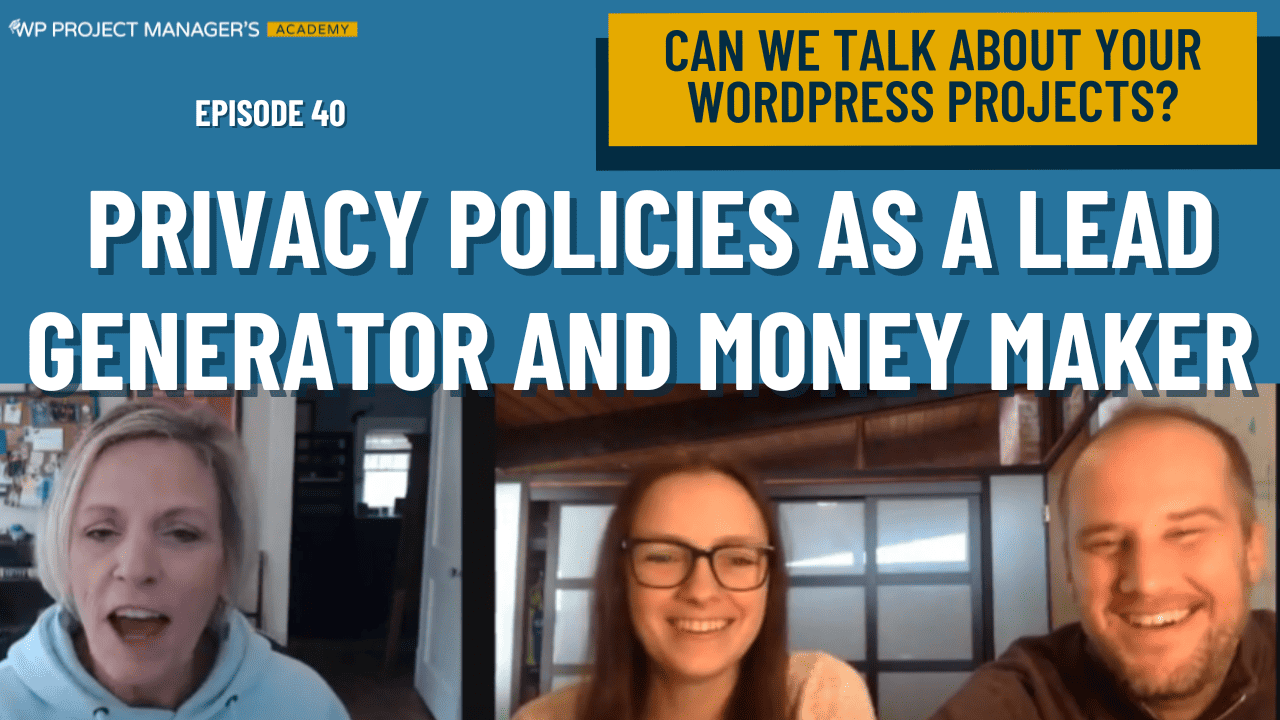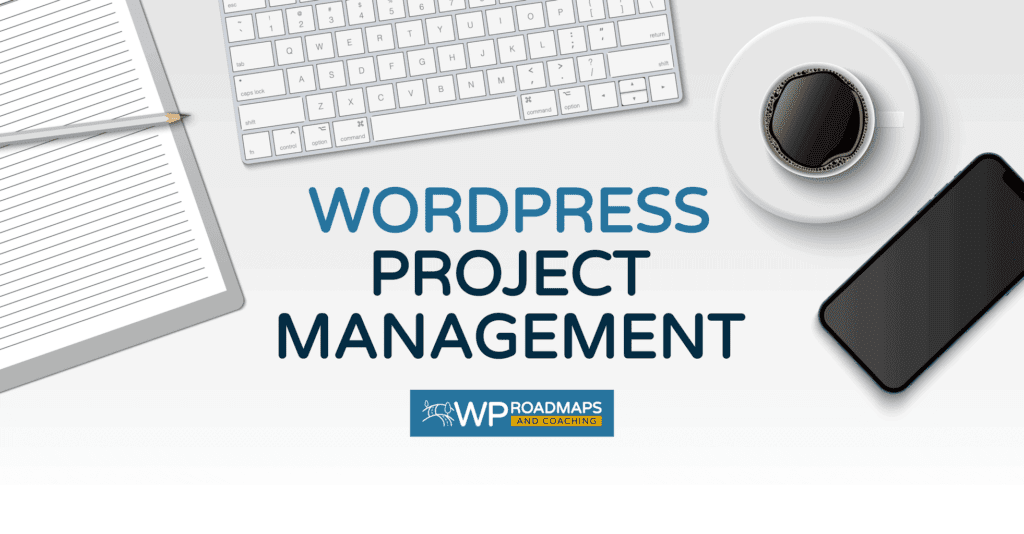How Website Privacy Policies Can Be A Lead Generator and Money Maker
On this edition of Can We Talk, I was absolutely honored to welcome my friends Hans Skillrud and Donata Kalnenaite Skillrud. We’ve known each other since the 2019 Word Camp circuit, and I couldn’t have been more thrilled when they agreed to join me for this week’s chat.
Hans and Donata are the two halves of the digital-legal power couple behind Termageddon. Termageddon is a privacy-policy generator which is so effective that it constantly keeps up with the legal Joneses—it actually updates your policy automatically as the laws change. Their clients run the gamut, but the coolest thing about the Skillruds is their transparency and openness about who needs a privacy policy and who doesn’t. It’s why they were the indisputable choice to come talk about privacy policies.
A privacy policy is an agreement that serves a twofold purpose: it both protects you and keeps your clients informed about data collection. Though you might never have considered it before, it’s actually an awesome way to build a source of recurring revenue. Why? Because if you’re keeping up with the ever-changing laws, you’ve got to keep getting paid for it.
But don’t take my word for it—that’s what Hans and Donata are here to show off!
Today’s meeting-of-the-minds was above and beyond informative, so I hope you’ll take time to hear what Hans and Donata had to say.
In the meantime, here are my thoughts and takeaways on our conversation about privacy policies:
1 – Privacy policies aren’t necessary for all kinds of sites, but when they are necessary, they need to be correct and all-encompassing.
Like I already mentioned you can tell that Hans and Donata are great people by the fact that they don’t try to sell privacy policies where they’re not necessary. But in any situation where you’re collecting any sort of data, be it for studies, newsletters, or sales, you definitely one.
Privacy policies can be tricky to craft—and it’s exactly because of their advantages over brick-and-mortar stores and offices. If you’re dealing with clients that span over multiple states and continents, all of those areas’ privacy laws need to be addressed. You and your clients need to keep yourself covered.
That’s why you should think MORE than twice before including it as a free service. There’s a lot involved! Whatever you do, though, just don’t copy-paste.
2 – When in doubt, speak to a (legal) professional.
Donata is the half of Team Termageddon that deals with legal questions, and she’ll be the first to tell you that it’s not all black and white. Privacy policies need to be fully comprehensive, and since the laws are constantly changing, it might not always be crystal-clear as to what you need to include.
If you have any questions at all, your best bet is to speak to an attorney. They’ll be able to help you and back up your findings, should you have any issues. They could also provide you with some tips to ease the research struggle along the way!
3 – Broaching the subject of privacy policies is an awesome teaching opportunity, rather than a time for fear tactics.
Talking about privacy policies with your clients is another excellent opportunity to practice your client communication skills. Whether you’re introducing the issue in the proposal stage or later on in the project of a recurring client, you’ll have the opportunity to educate—but not to create a fear-based need.
It’s true that the repercussions of having a faulty or outdated privacy policy can become serious and very costly in no time, but you run the risk of losing a client in the long-term if you make them feel panicky.
Instead, schedule a meeting and explain why a good privacy policy is important. You can save the gut-wrenching examples until they have proven to really not get the point.
4 – Make the privacy-protected MVP your end goal on a tight budget, rather than creating the be-all-and-end-all site.
Having an issue with your perfectionistic tendencies and comprehensive privacy policy agreements vs. your project timeline? That’s when we need to look towards the MVP, or minimum viable product.
Prioritizing a site with minimal bells and whistles but maximum functionality, including necessary privacy precautions, is important for ensuring that your clients are satisfied with your delivery time.
We’ve talked before about not letting perfect become the enemy of good, and that couldn’t be truer in this case.
Take a page out of Hans and Donata Skillrud’s project and explore what privacy policies could mean for you and your clients. For them, it could be the protection they need among their own audience. For you, it could be an additional source of income or an added service for your current projects.
In the meantime, keep working on your processes, and most of all, never stop learning!
Are ALL your projects getting done on time and within budget? If not, we got you!
Join the WP Project Manager’s Academy – a FREE membership program where you can learn everything you need to know to consistently get your projects completed on time, within budget, with features that meet the client’s business requirements WITHOUT sacrificing profit.
You might also want to Join our Facebook Group where we have weekly live trainings on all things project and productivity management as well as a Friday chat session.



